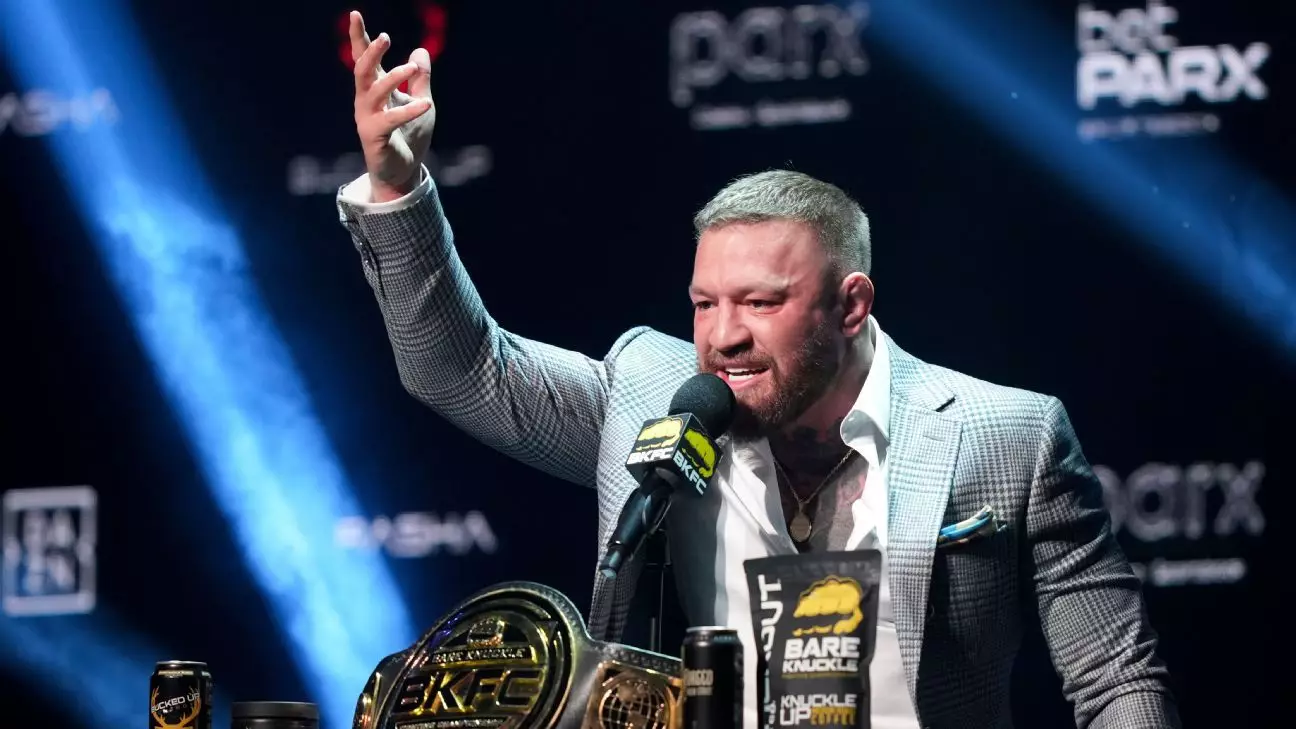Conor McGregor’s ambitions have often transcended the octagon, as evidenced by his attempts to engage in an exhibition boxing match against Logan Paul. However, the UFC’s disapproval shines a light on a broader issue regarding cross-promotion and the restrictive nature of contract obligations within mixed martial arts. McGregor articulated his frustration during an interview with MMA influencer The Schmo, highlighting that the UFC dismissed the idea of an exhibition match as merely a “glorified spar.” This rejection raises questions about the UFC’s control over its fighters and their brand affiliations, particularly in an industry where crossover appeal and diverse revenue streams are increasingly important.
The Timing and Business Savvy
Timing plays a crucial role in the fight business, and McGregor recognized a unique opportunity in the burgeoning market of India. With TKO Group Holdings, the parent organization of both the UFC and WWE, witnessing rising stock prices, a McGregor-Paul match could have not only captured global attention but also leveraged the commercial potential in emerging markets. The fact that McGregor saw this as a “business savvy” opportunity indicates a pragmatic side to his persona, one that is often overshadowed by his brash public image. Yet, the UFC’s refusal to allow him this venture invites speculation on whether they prioritize their brand integrity over potential income streams.
In contrasting McGregor’s current situation with his past, particularly his high-profile bout against Floyd Mayweather, it is clear that the UFC’s dynamics have shifted. While he was granted permission to box Mayweather in 2017, McGregor’s circumstances have changed dramatically since suffering a catastrophic leg injury against Dustin Poirier in 2021. The serious implications of his previous bout against Poirier have not only limited his fighting capabilities but also constrained his promotional opportunities. The question remains whether McGregor can effectively navigate this new landscape, or whether the shadow of his legal troubles and physical setbacks will loom too large.
The Influencer Era
The emergence of social media influencers like Logan Paul has altered the landscape of combat sports significantly. McGregor’s acknowledgment of the potential for “astronomical” profits in pursuing influencer partnerships signals a shift in how athletes view their careers. This willingness to embrace the unexpected suggests that fighters are becoming increasingly aware of the lucrative intersections between traditional sports and the digital age. While McGregor is adept at tapping into this new frontier, it remains to be seen whether the UFC’s rigid structure will allow him the freedom to exploit such crossover opportunities fully.
Despite the setbacks and obstacles, McGregor remains unyielding in his pursuit of a boxing event against Logan Paul. His intent to navigate through UFC’s restrictions speaks volumes about his resilience and adaptability. Whether the UFC will eventually soften its stance or whether McGregor will find alternative routes to realize this exhibition match is still uncertain. The allure of celebrity matchups in combat sports continues to grow, and McGregor’s name remains a significant part of that narrative. As influencers and traditional combatants collide, the future of McGregor’s aspirations could redefine the artistic boundaries of sport altogether.

